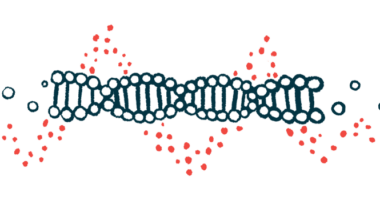Rett Syndrome Research Included in $6.9M CIHR Funding
A $100K study will focus on molecular anomalies in the brains of Rett patients

A study on the brain’s molecular anomalies in Rett Syndrome received $100,000 in funding from the Canadian Institutes of Health Research (CIHR).
The research will be conducted for a year by the team of Mojgan Rastegar, PhD, at the University of Manitoba, Canada. It’s one of six studies from the university’s Rady Faculty of Health Sciences that received a total of $6.9 million from CIHR.
“Our research results from this project are expected to determine the extent of molecular and cellular damage in the brain of Rett syndrome patients and shared defects with animal models of this disease,” said Rastegar, a professor of biochemistry and medical genetics at the Max Rady College of Medicine, in a university news release.
Rett syndrome affects brain functions, resulting in cognitive, motor, sensory, and emotional symptoms, as well as heart, respiratory, and digestive issues.
In almost all cases, it’s caused by a mutation in the MECP2 gene, which provides instructions for producing the MeCP2 protein. This protein regulates the activity of other genes by switching them on and off. It’s role is particularly important in brain development and function.
As part of the study, the scientists will perform side-by-side molecular and cellular research to explore common brain anomalies of people with Rett syndrome and mouse models of the disease. Employing compounds frequently used in preclinical studies of Rett, the study will include rescue and recovery of the identified Rett syndrome-associated disturbances.
“Our research may eventually lead to potential therapeutic solutions that are targeted towards commonly impaired characteristics of the brain in Rett syndrome,” Rastegar said. “Our research results may also help to understand the unique characteristics of specific types of MeCP2 mutations for this complex and severe disease.”
Rastegar’s team has focused on the role of epigenetics — biological characteristics caused by changes in gene activity rather than the underlying genetic code — and the MECP2 protein on brain function and neurodevelopmental disorders. Of interest to the team is the use of medications already available for other diseases, called repurposing, which reduces time and costs compared to developing a new medication.
Besides Rett syndrome, mutations in the MECP2 gene and epigenetic changes have been associated with other disorders, such as autism spectrum disorder and fetal alcohol spectrum disorders, which is caused by exposure to alcohol before birth, as well as MECP2 duplication syndrome. It’s caused by having an extra copy of MECP2 and, as a result, too much MeCP2 protein.
The other studies funded by CIHR focus on advancing research in treating pneumonia, heart failure, human immunodeficiency virus (HIV), human papillomavirus (HPV), and type 1 diabetes. They will range in duration from three to five years.
“This excellent showing by our faculty members and their partners in receiving this funding is a testament to the outstanding quality of research conducted at the University of Manitoba,” said Mario Pinto, vice president (of research and international) at the University of Manitoba. “I congratulate these research leaders, whose work continues to improve the quality of health and patient care here in Manitoba and around the world.”







